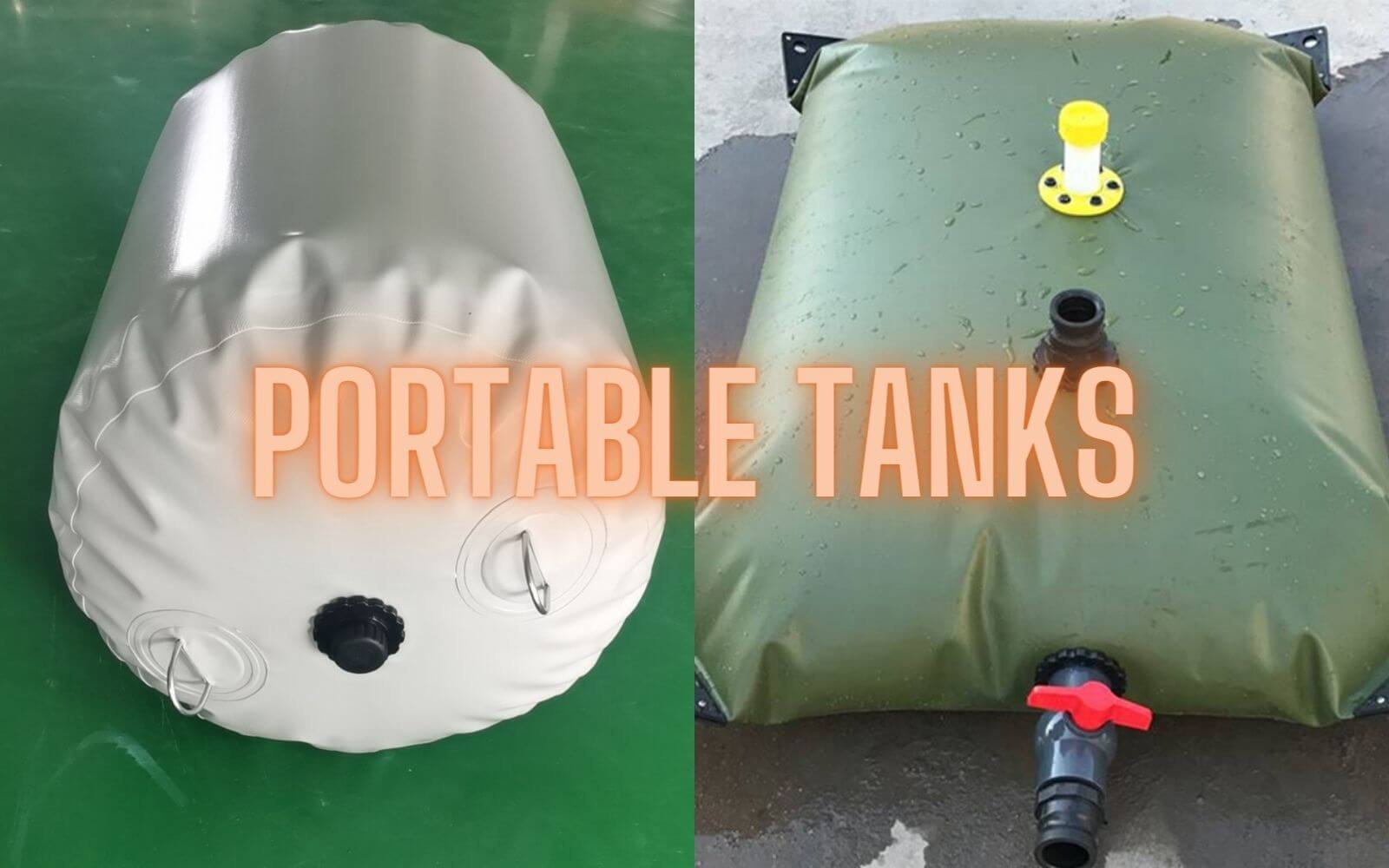PORTABLE TANKS
Portable tanks, also known as temporary or relocatable storage containers, offer flexible storage solutions with swift assembly, disassembly, and remote relocation capabilities. These versatile tanks cater to various industries, providing flexible storage options for liquids, gases, and chemical materials. Let’s delve into the versatility of these portable tanks and their applications.
Portable tanks use in various projects from residential applications, industrial sites, commercial purpose to military deployment, sub-sea works. The quick response flexible bladders can be found.
Industrial Storage:
Portable tanks find extensive use in industrial settings. They store chemicals, fuels, and water(including drinking water) required for manufacturing processes. Their flexibility in storage and transportation allows easy adaptation to changing production needs.
Emergency Response:
During disasters or emergency situations, portable tanks serve as temporary containers for water for drinking or daily water supply, fuel storage for generator or construction energy sources, or gray water for wastewater management. Their quick deployment ensures timely relief efforts.
Agriculture and Irrigation:
Farmers use portable tanks for water storage, animal drinking water storage and transportation, irrigation, fertilizer liquid storage, and pesticide mixing. Their flexibility enables placement in various locations across the farm.
Construction Sites:
Construction projects often require temporary storage for water which is needed during construction process and worker’s daily water consumption. Considering the environmental issues, the wastewater management is also key use at construction site by using water storage tanks. And the flexible tanks at construction site use as compactor also, the advantage of using the portable bladder is easy to deploy, when filling the water into the bladder, it can provide compaction with heavy weight, when empty, it can be folded and easy to move. Portable tanks provide a convenient solution.
Environmental Containment:
Portable tanks help contain spills, manage wastewater, and prevent environmental pollution. They are commonly used during oil spills, chemical leaks, or cleanup operations.
Military and Defense:
Military operations rely on portable tanks for fuel storage, water supply, and waste management. Their flexibility allows deployment in remote or challenging terrains.
Transportation:
Flexible tanks are used for transporting liquids, such as water, fuel, chemical. They can be customized to fit into trucks, trailers, or shipping containers.
Adaptability:
Portable bladder can customize on shape, size, materials, fittings based on specific requirements. Their flexibility on shape designs allows fitting into tight spaces or irregular surfaces. And the multi-liquid purpose makes it is able to apply in various applications – water, fuel, chemical liquid.
Cost-Effective:
Compared to rigid tanks, flexible solutions are more cost-effective, including reducing the cost of the tank cost, saving the shipping cost, investing less on installation and maintenance, and minimizing space for storage when empty.
Lightweight:
Flexible tanks weigh significantly less than traditional steel or concrete tanks. For example, 1000L flexible tank, the weight is 10kgs, packing in 0.06m3 carton. This weight reduction simplifies transportation and handling.
Easy Installation:
Portable tanks can be quickly set up without specialized equipment. Their collapsible design facilitates efficient storage when not in use.
Durability:
High-quality materials ensure durability and resistance to UV, anti-bacterial, anti-corrosion from chemicals, and -40~90 celsius degree working temperature. Those features mentioned makes the bladder tanks can use in extreme environments.
Minimal Environmental Impact:
Flexible tanks have a smaller ecological footprint due to reduced material usage and energy consumption during production.
Portable tanks offer a versatile and sustainable solution for temporary storage needs across various industries. Their flexibility, ease of installation, and environmental benefits make them an attractive choice for businesses and emergency responses like.








